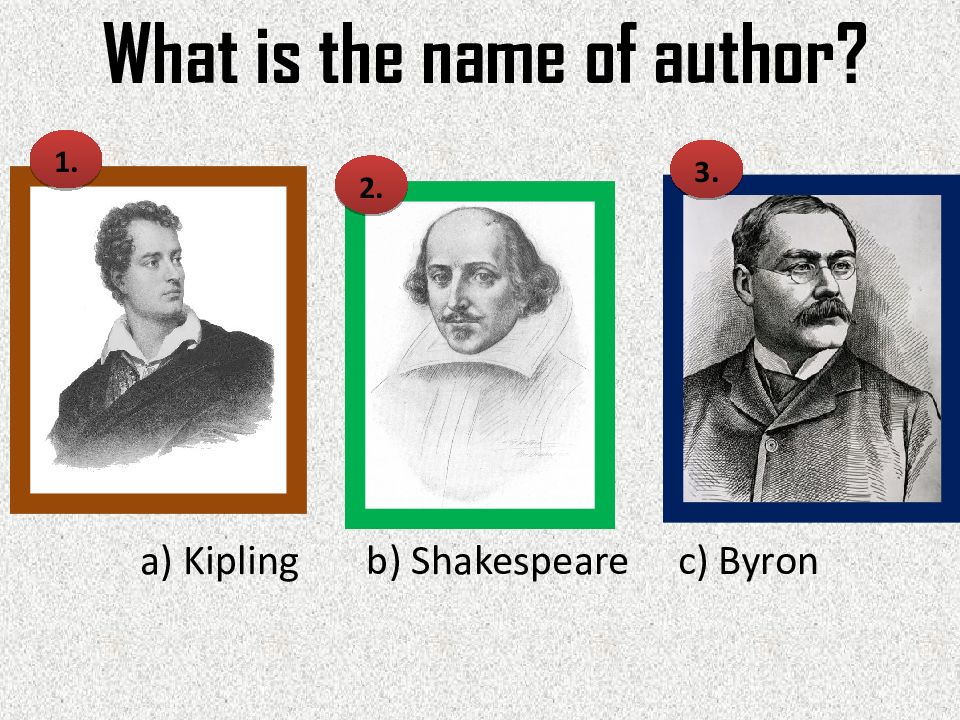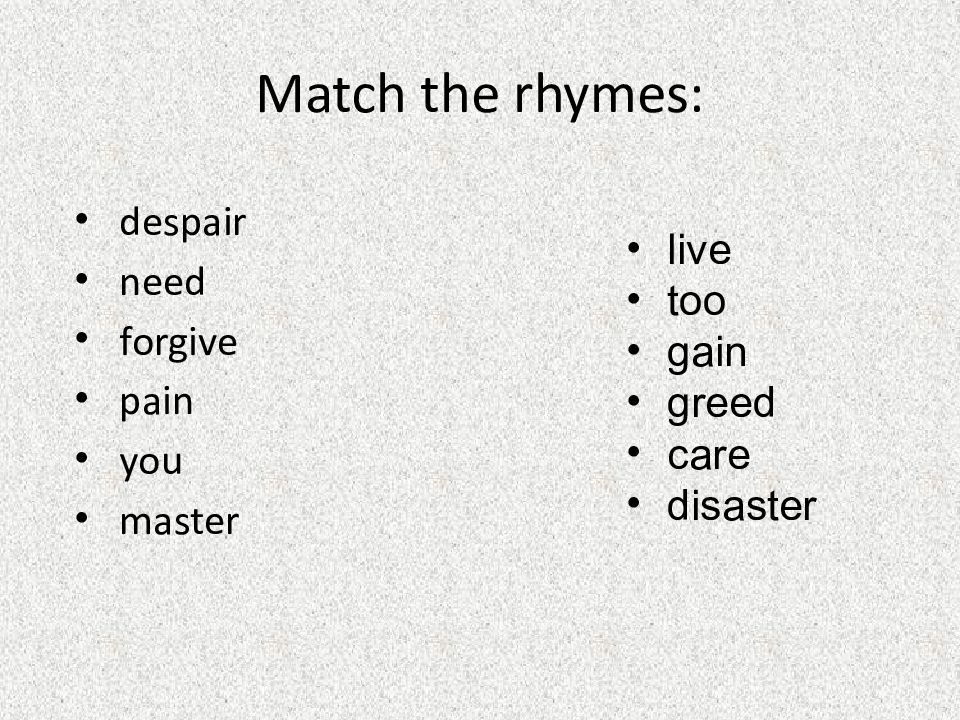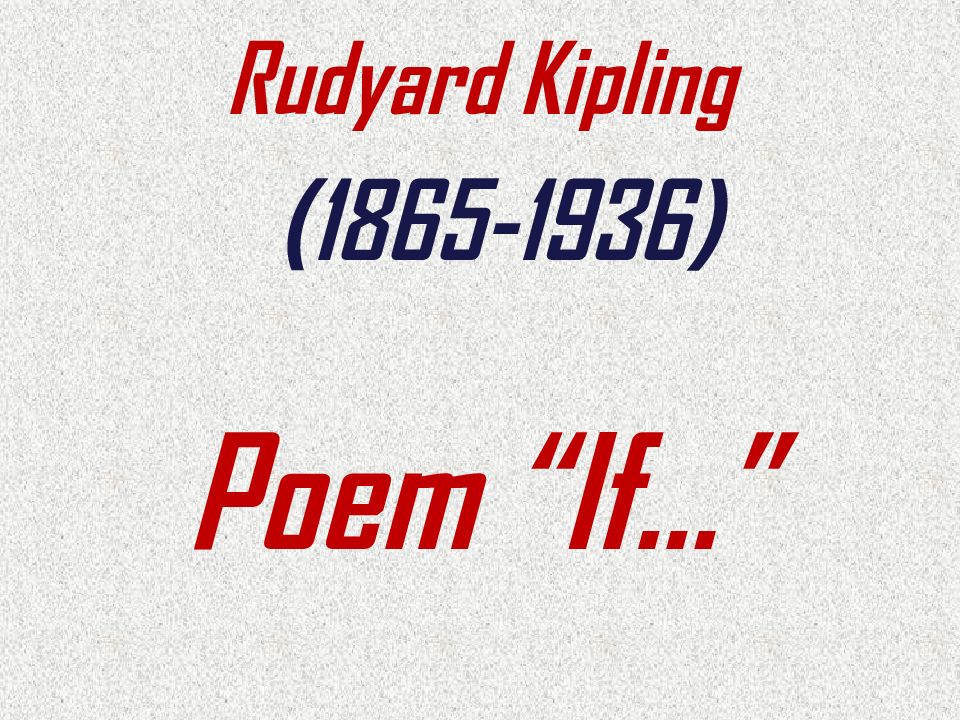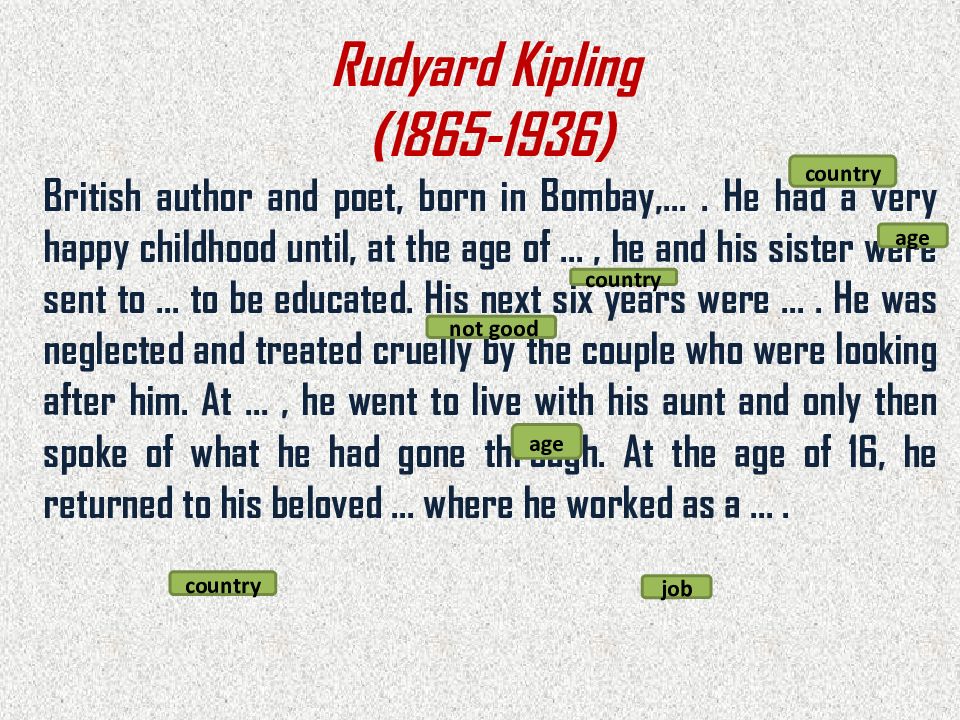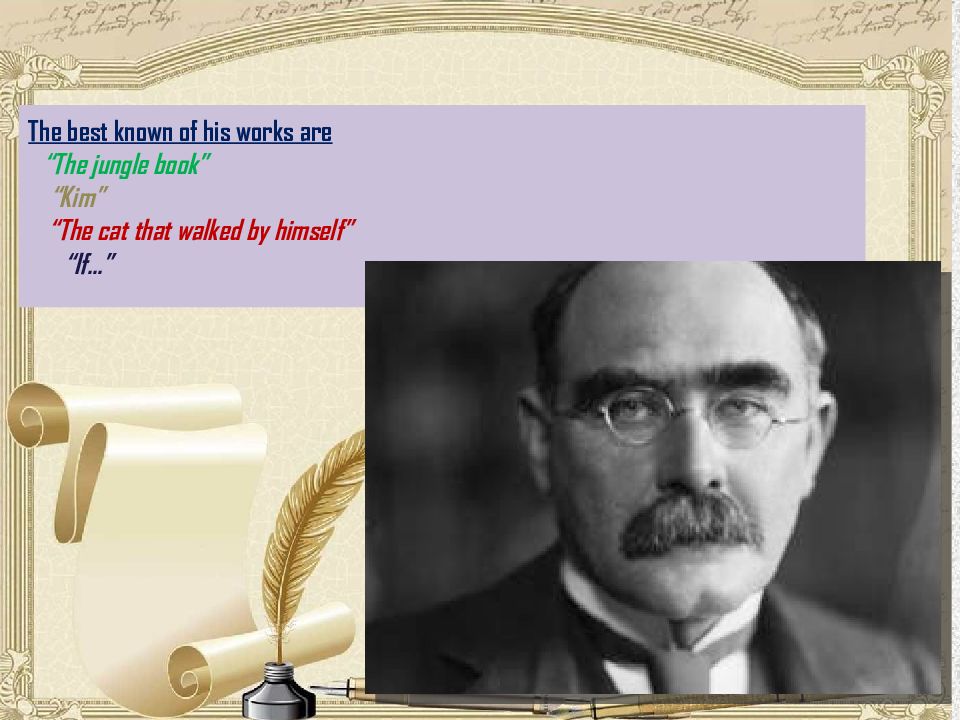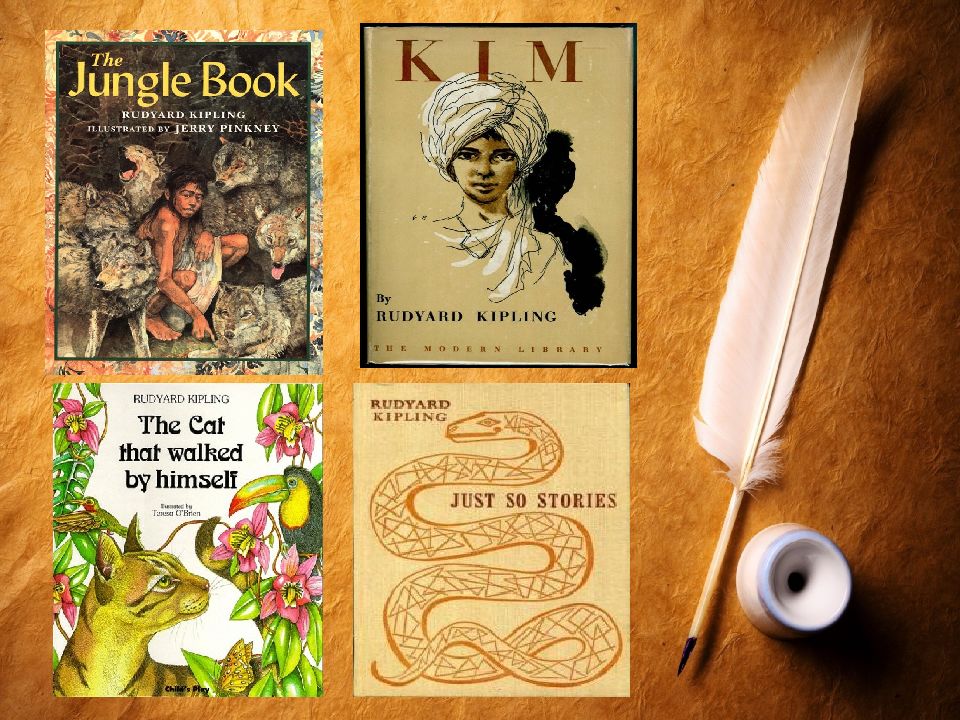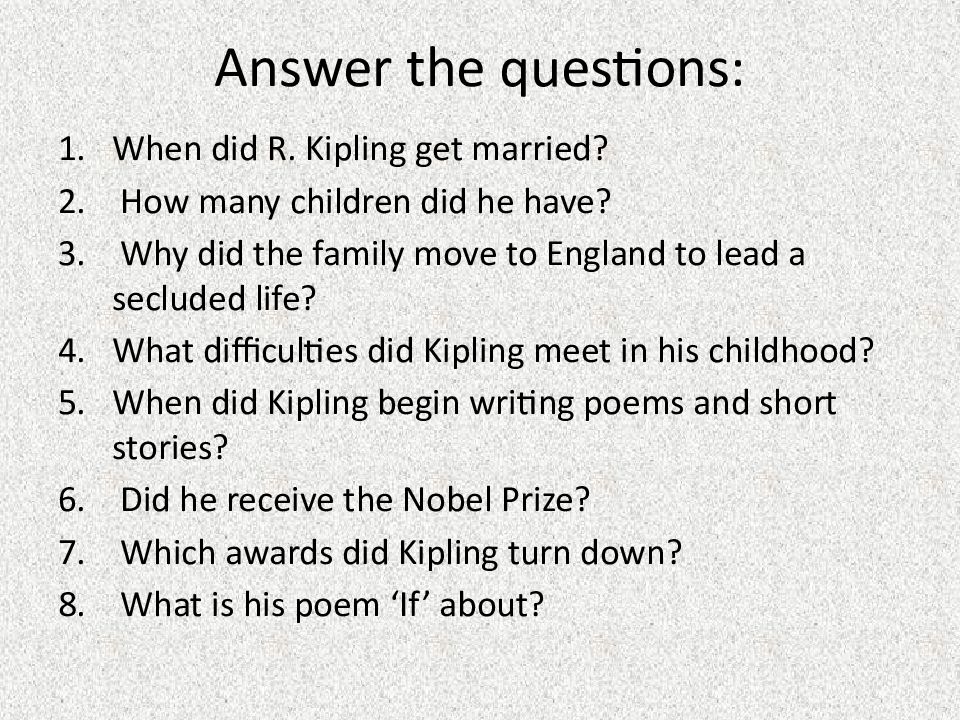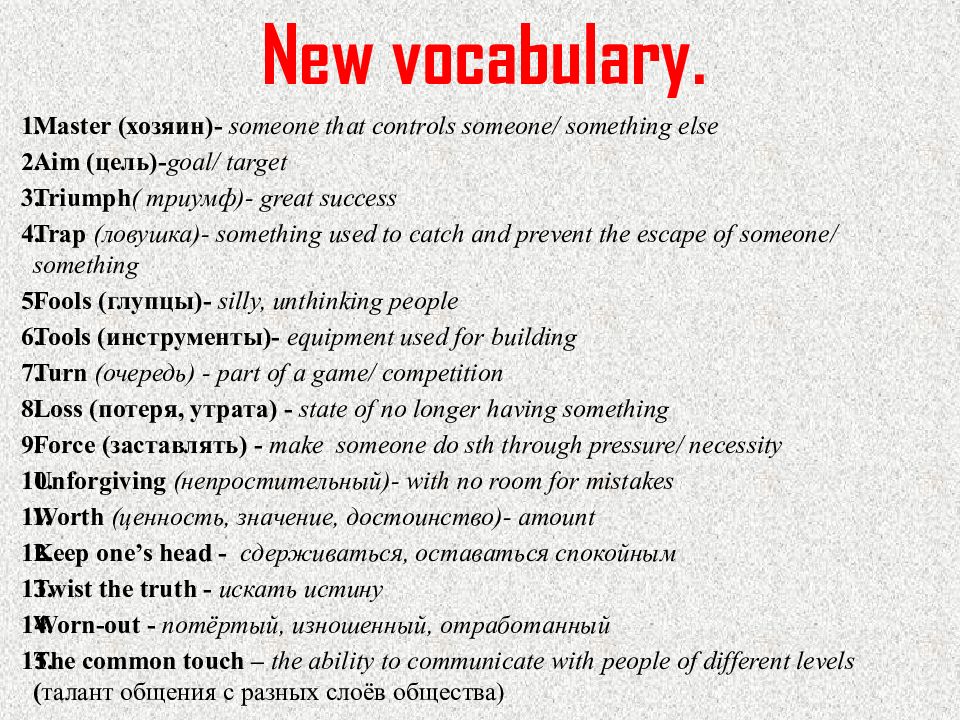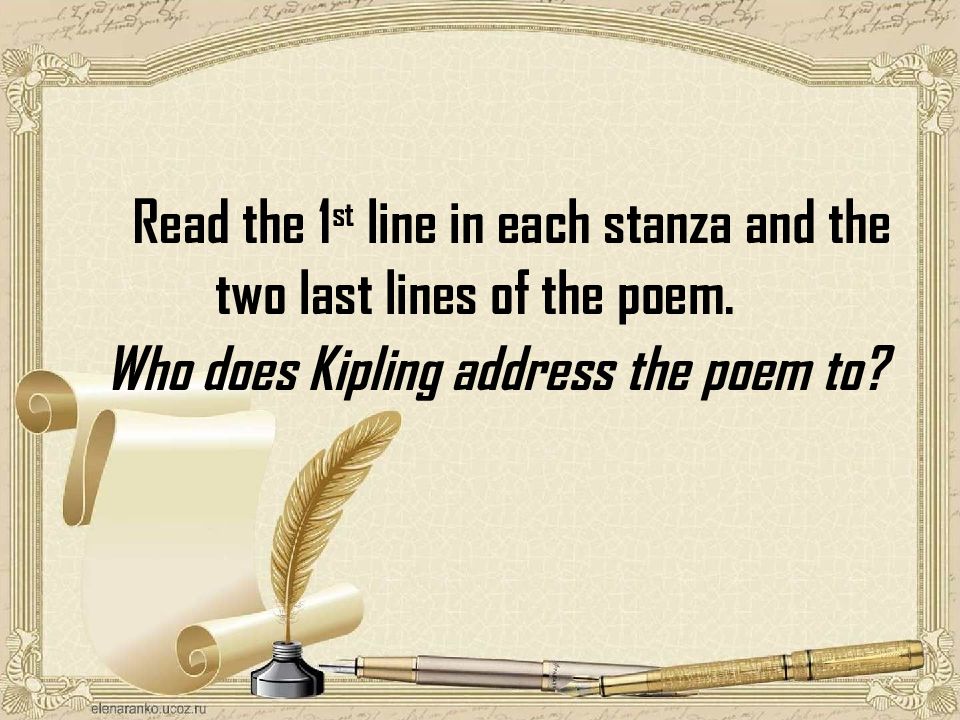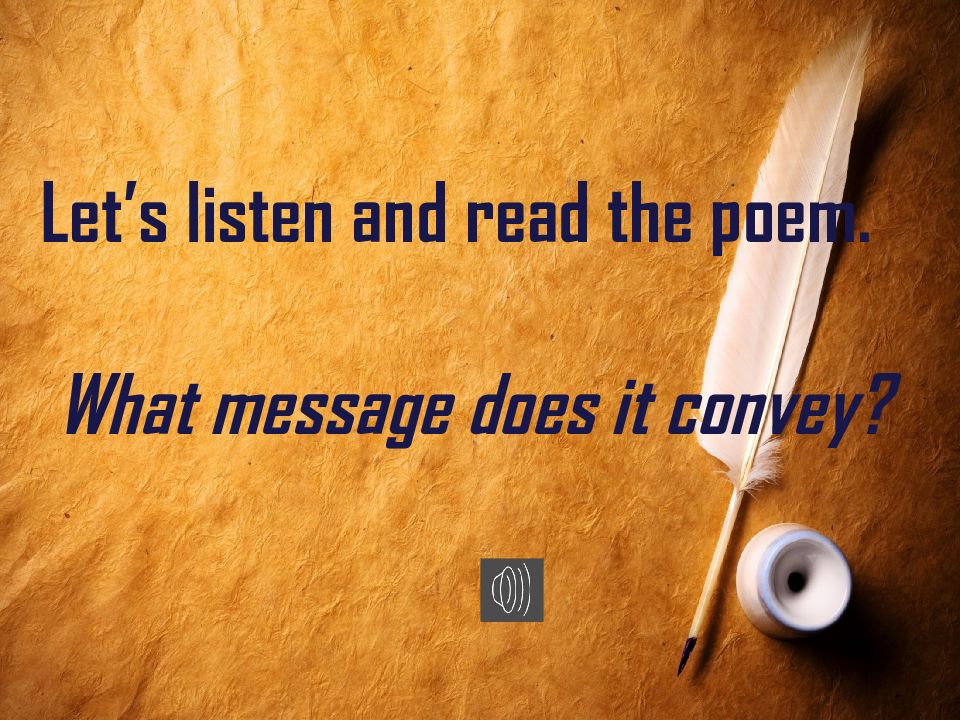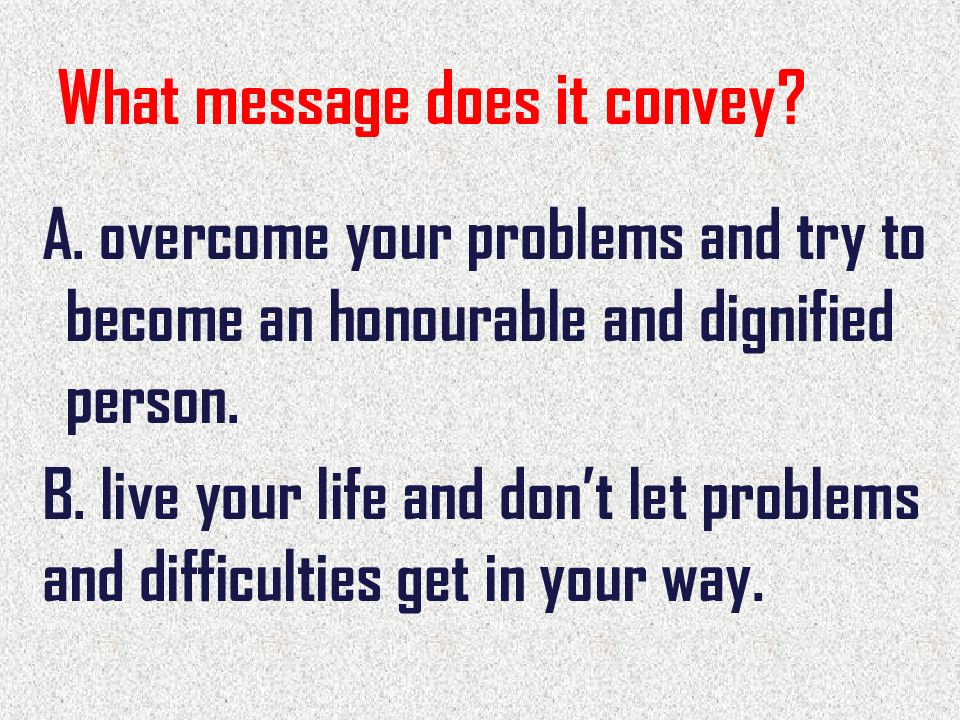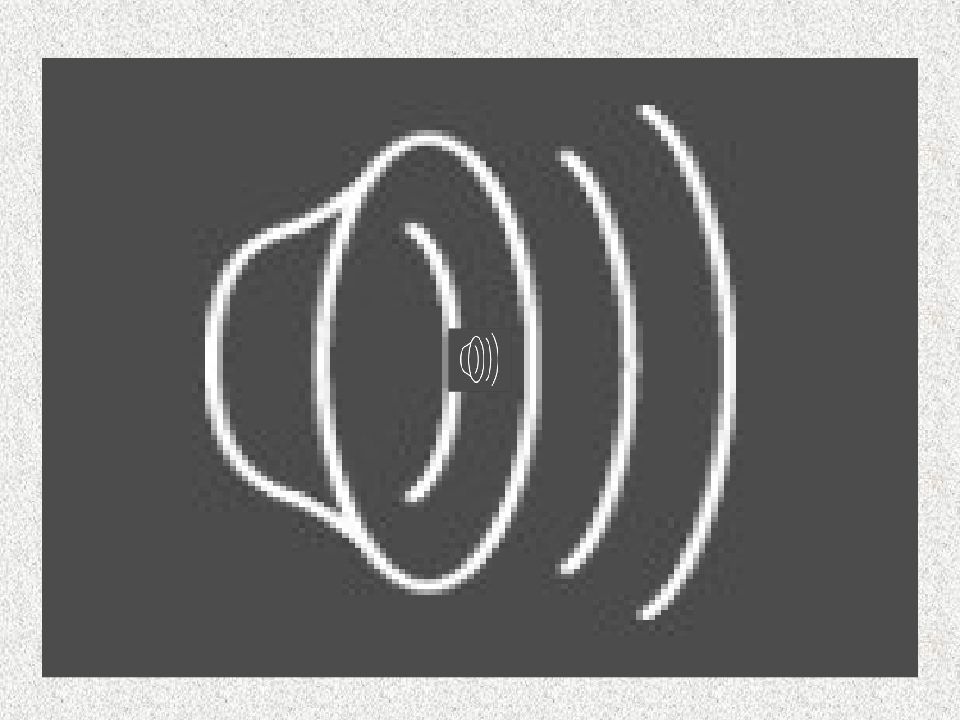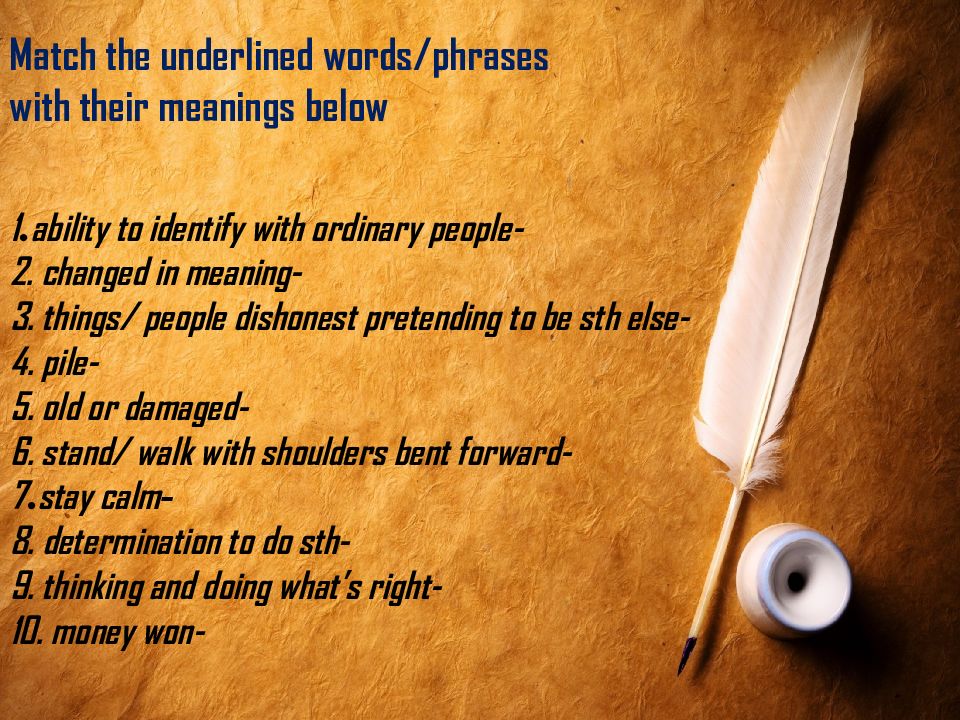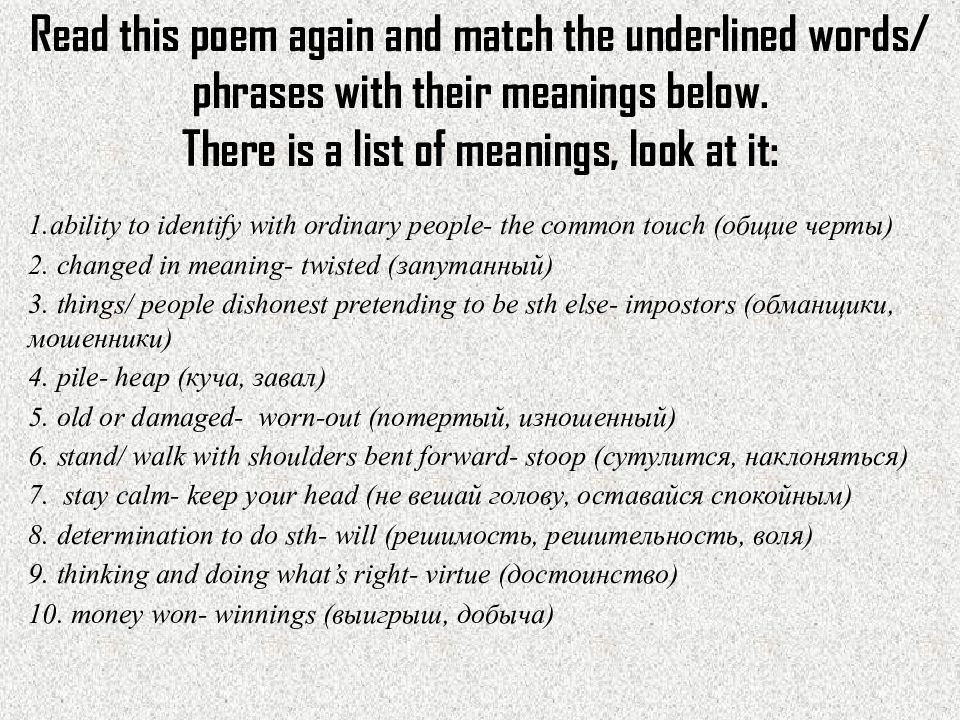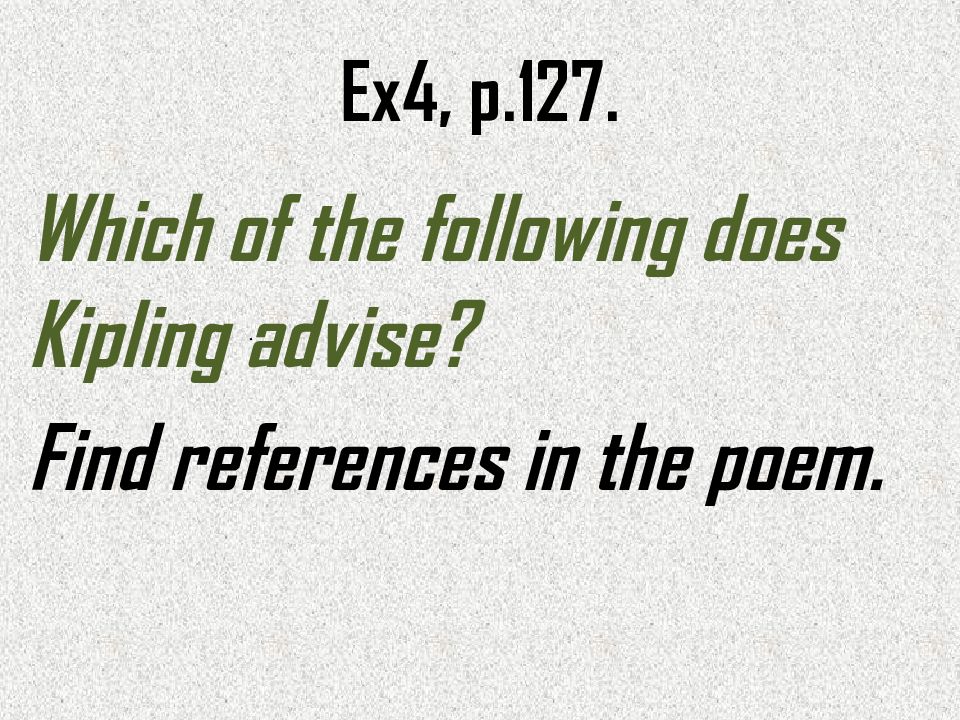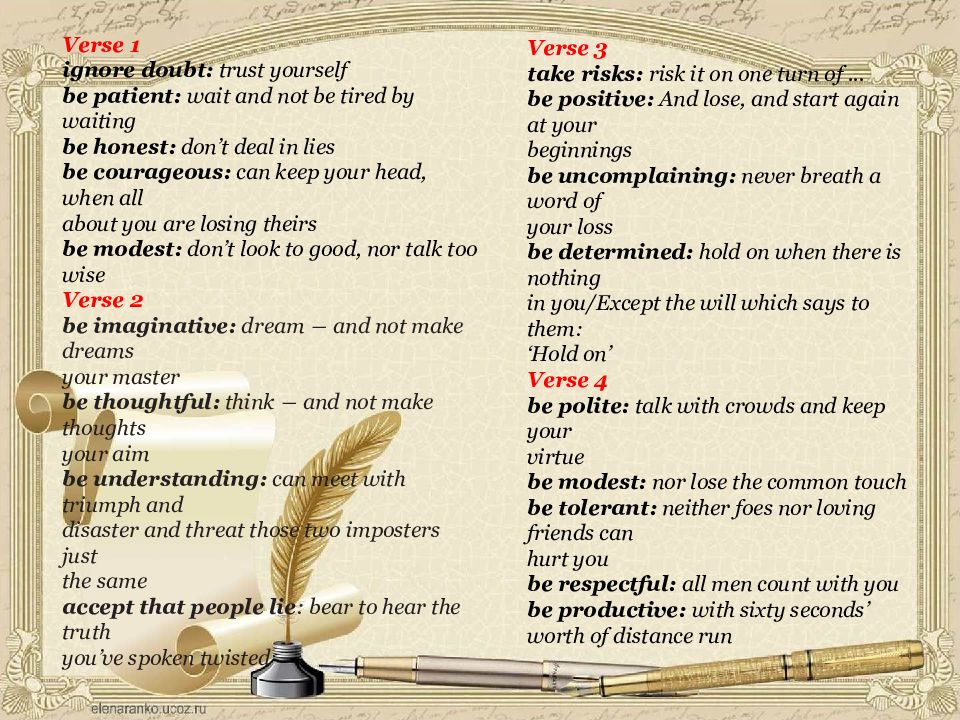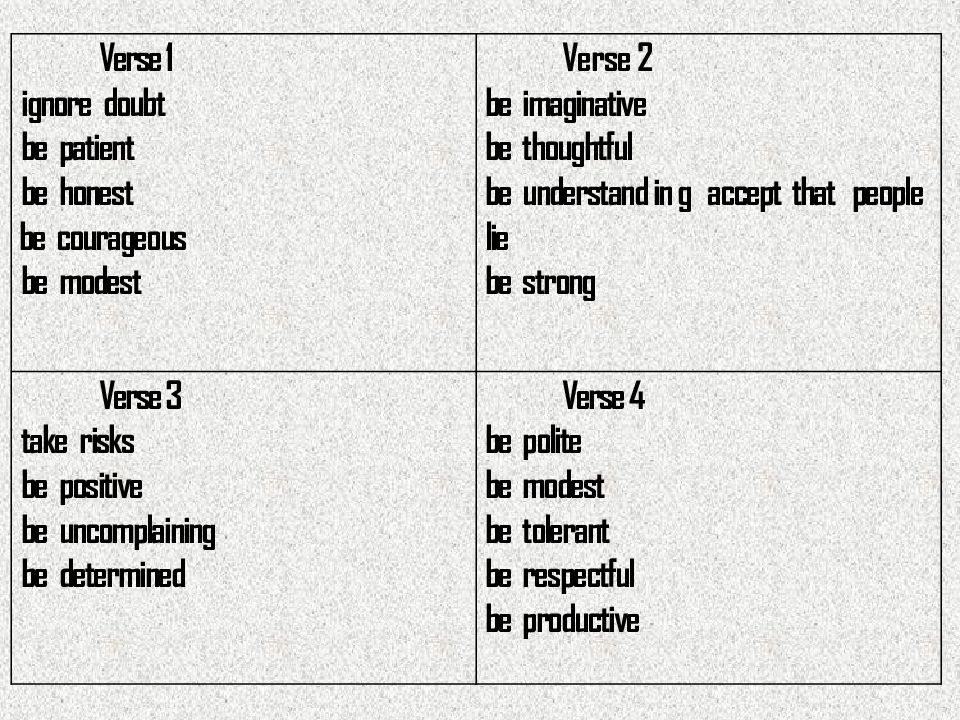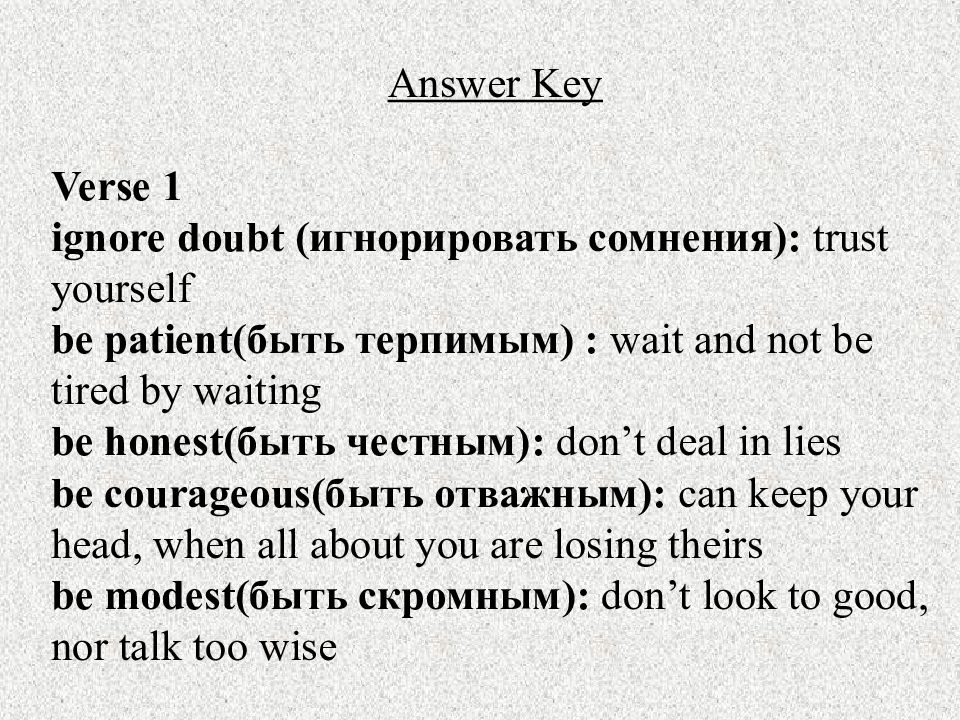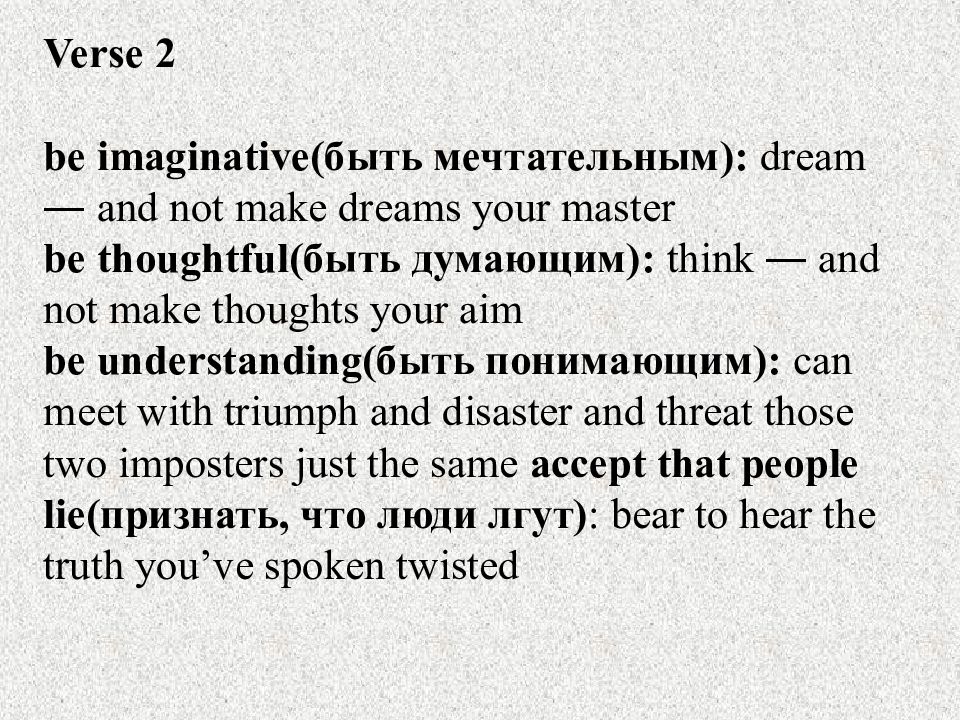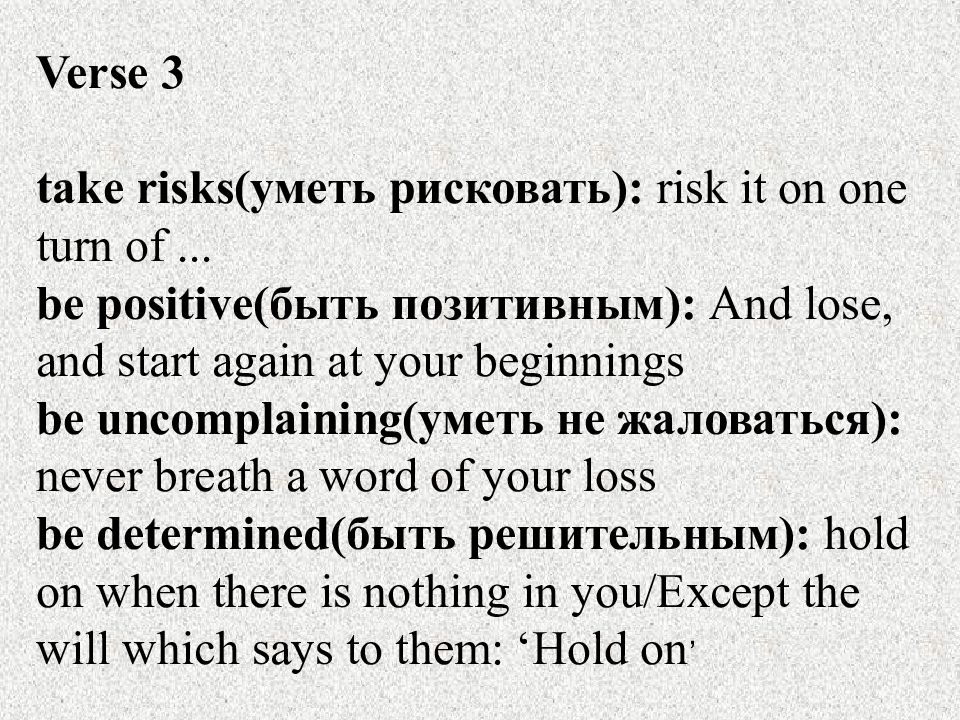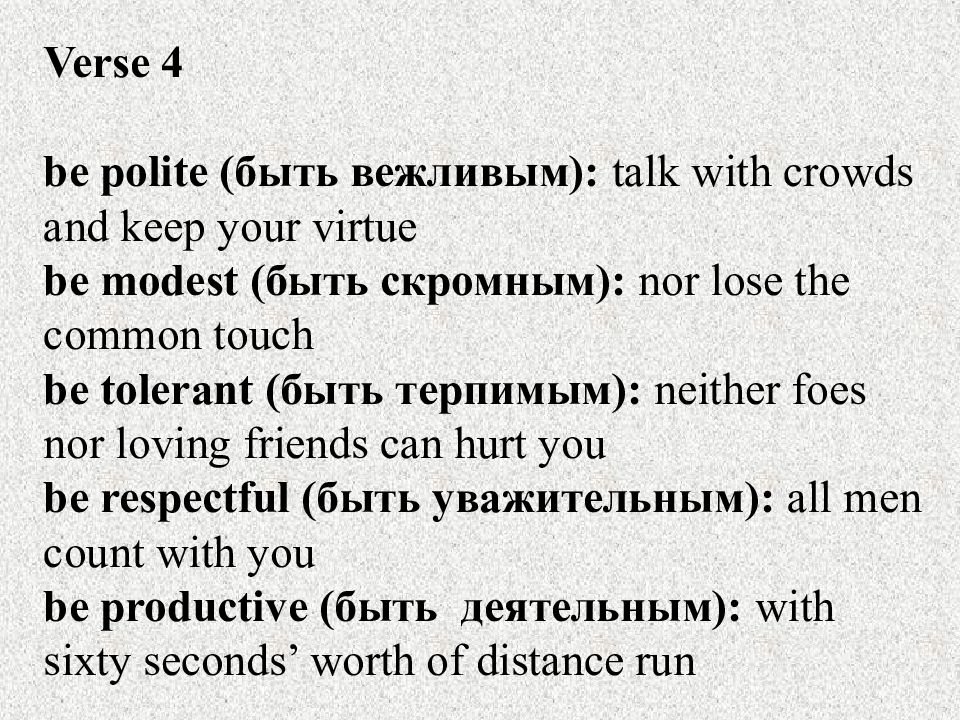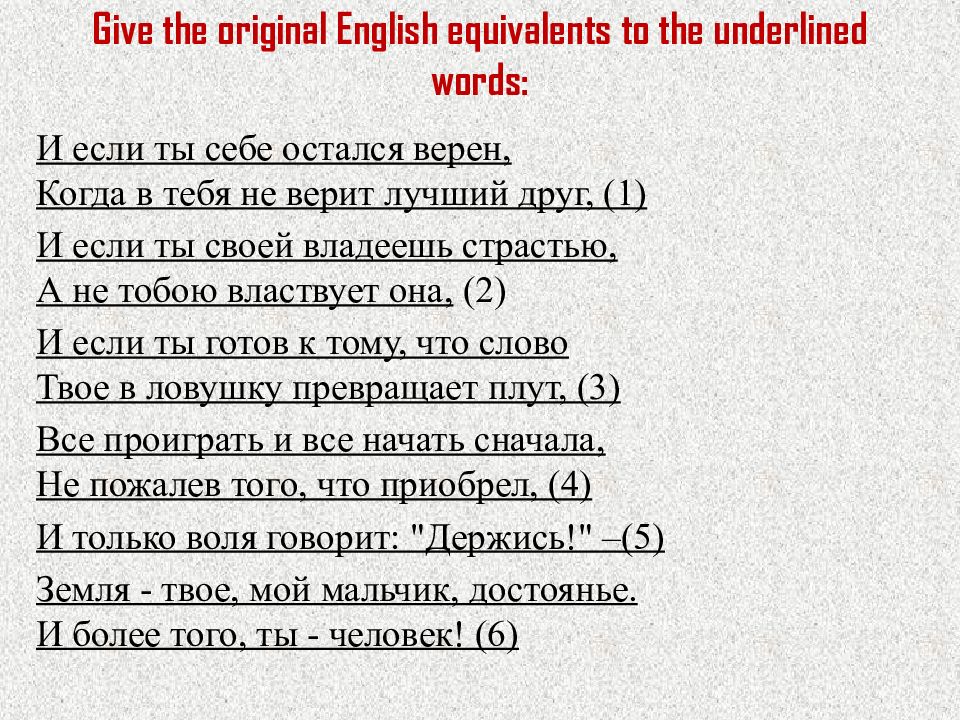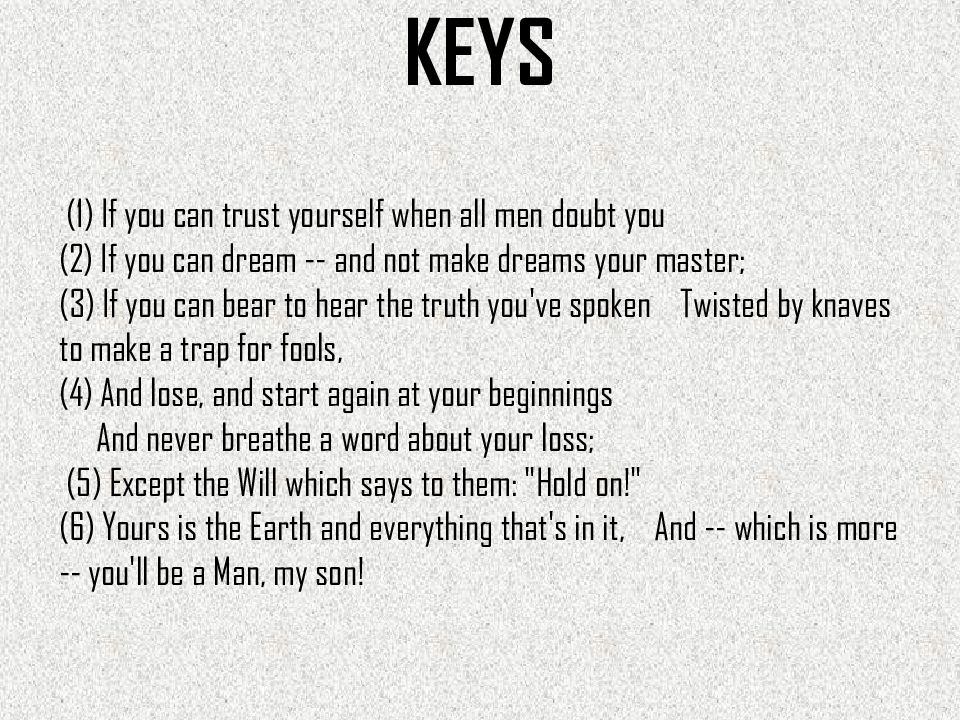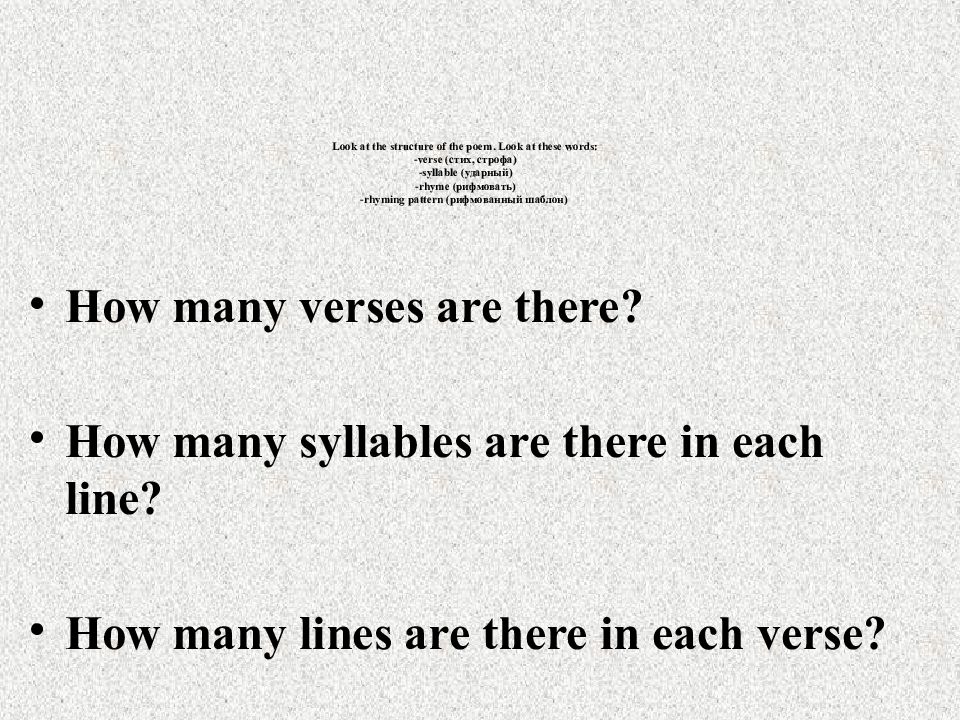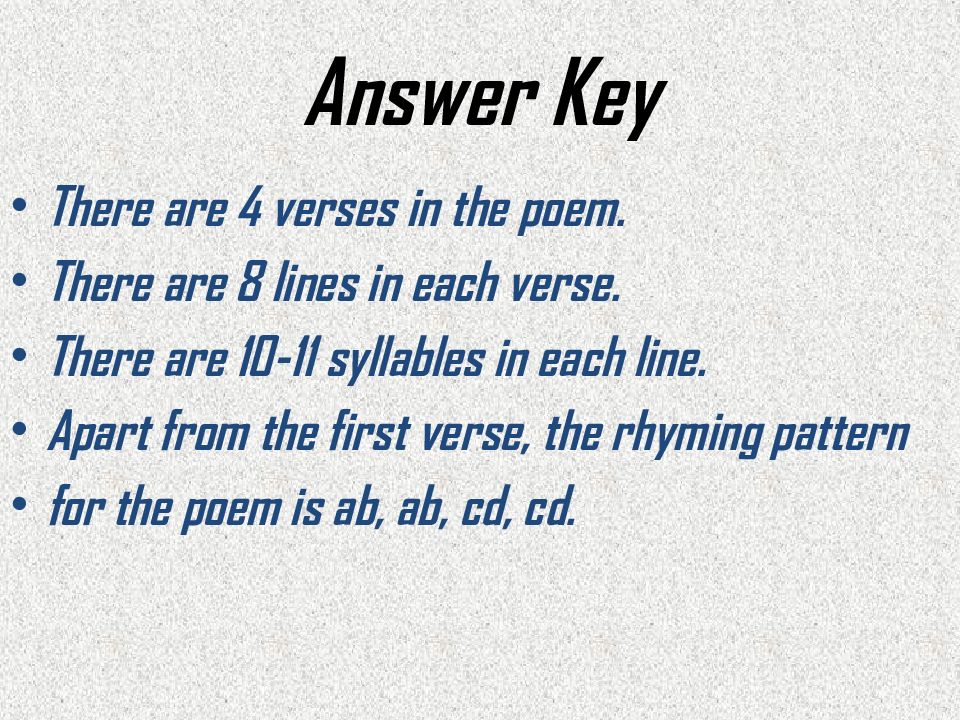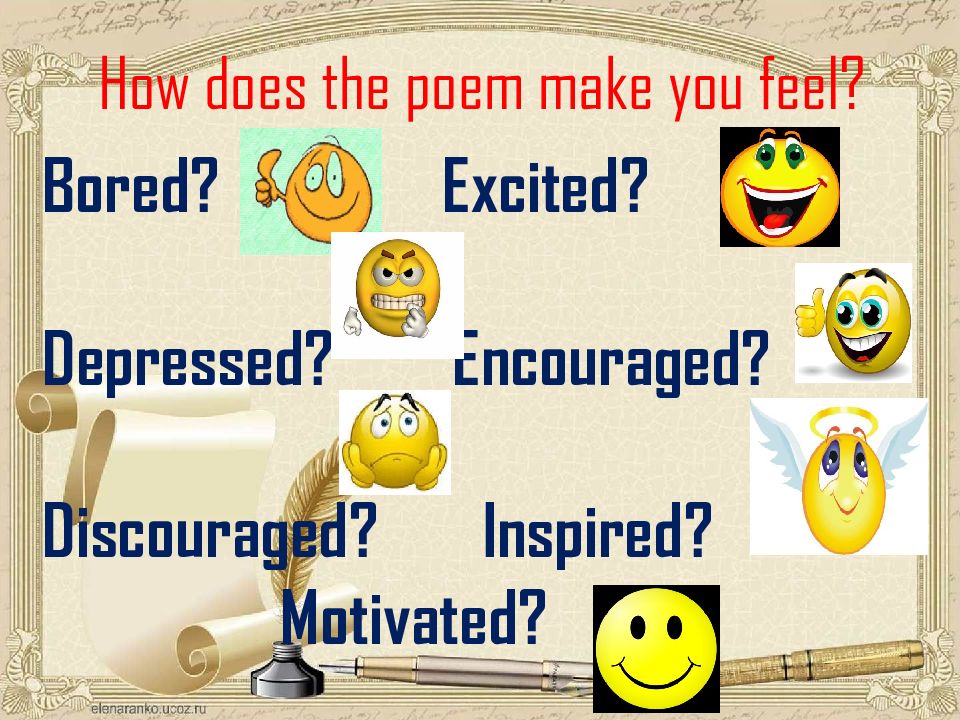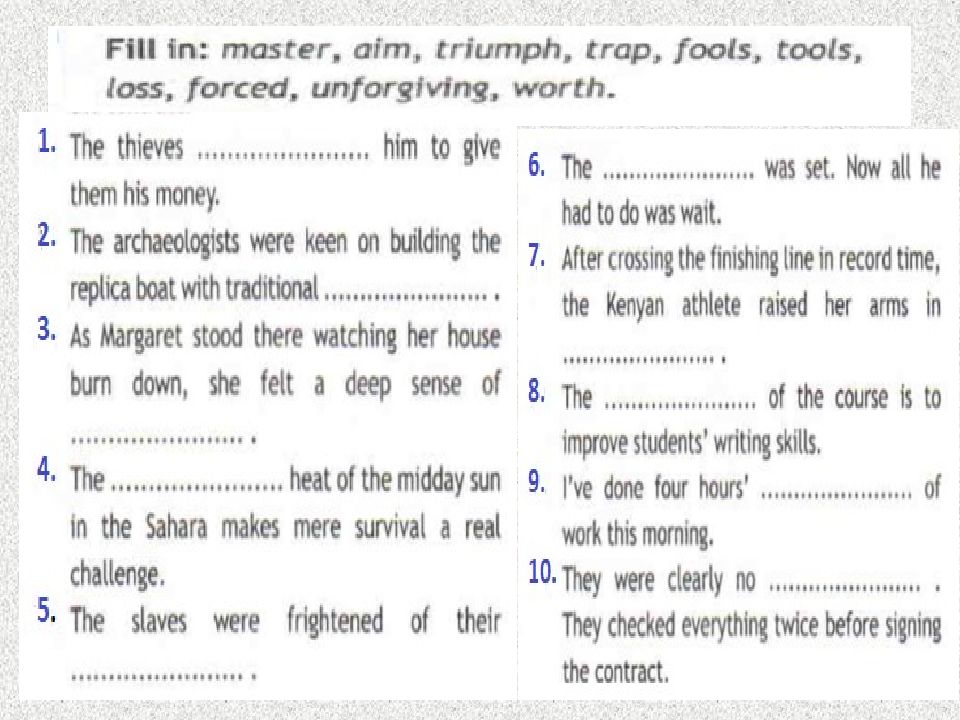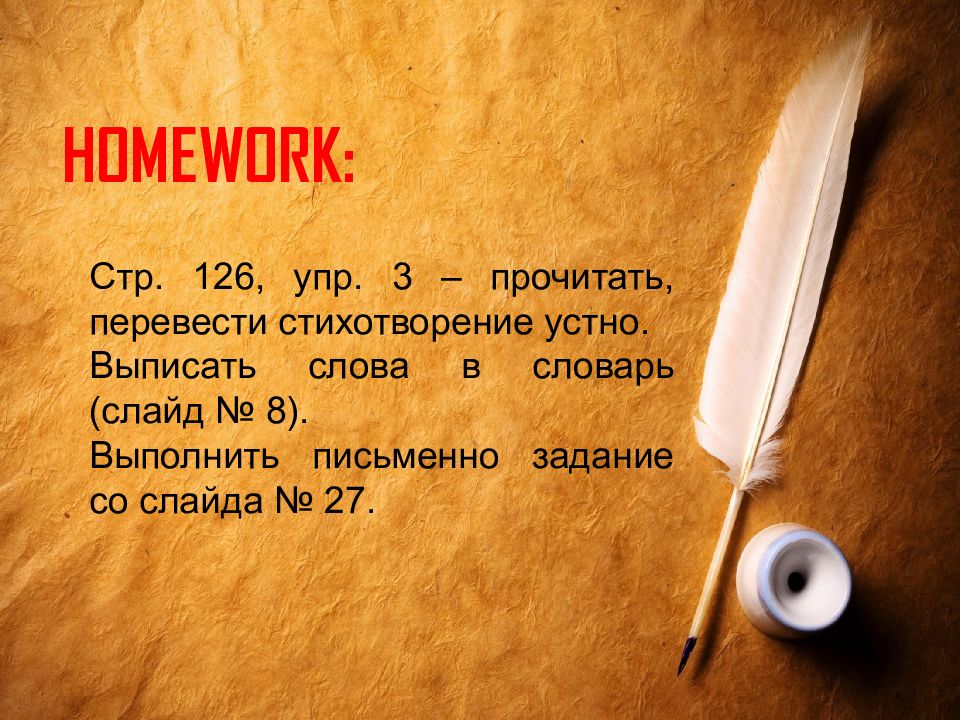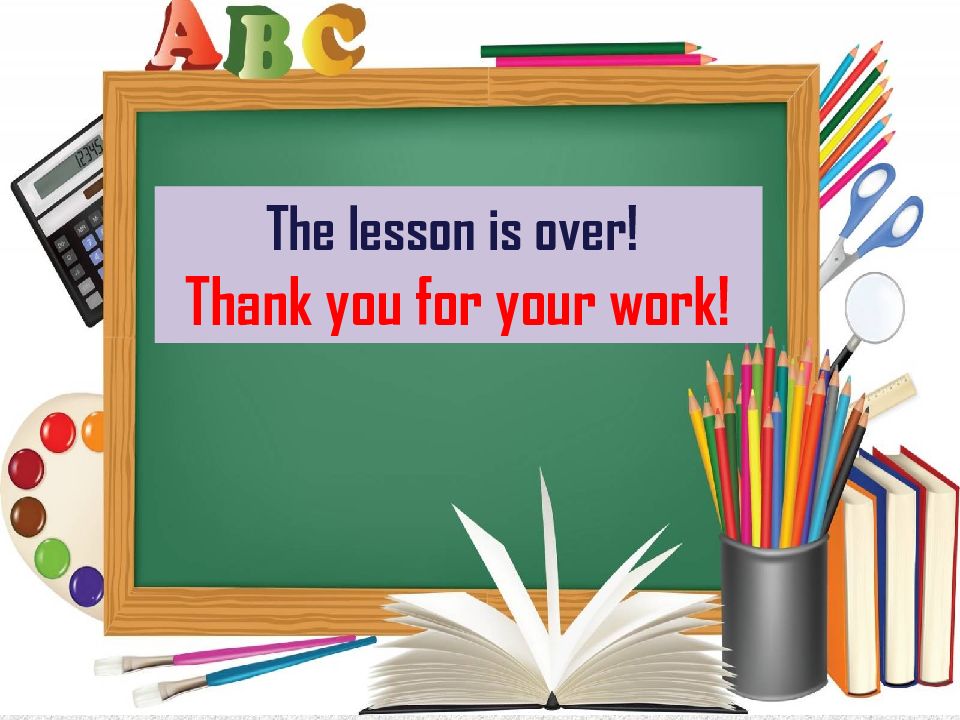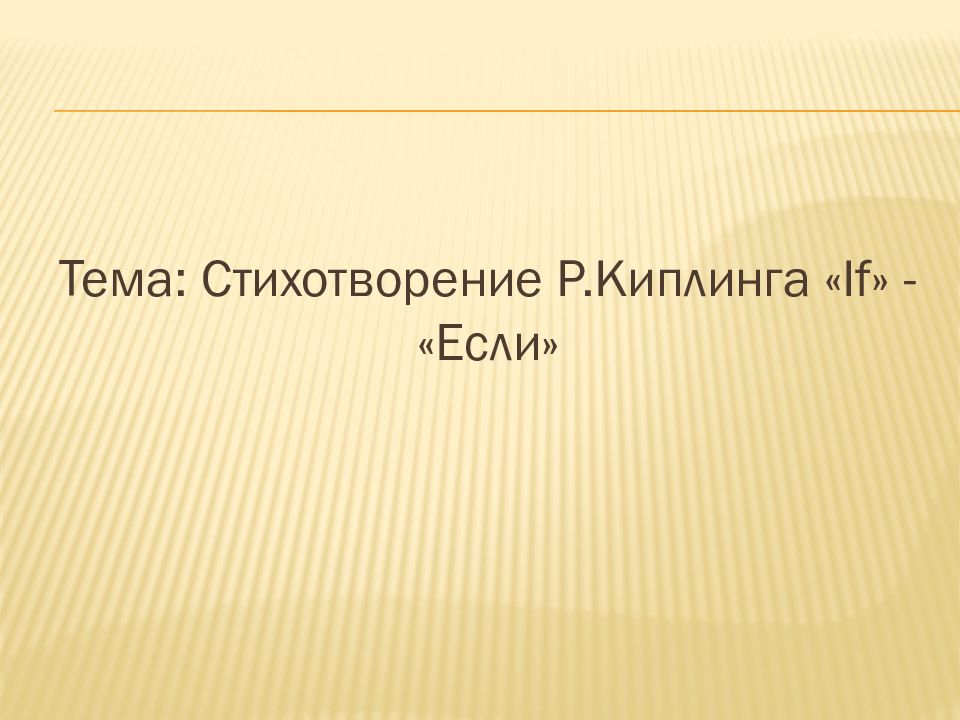Первый слайд презентации: What is the name of author?
a) Kipling b) Shakespeare c) Byron 1. 2. 3.
Слайд 2: Match the rhymes:
despair need forgive pain you master live too gain greed care disaster
Слайд 4
Rudyard Kipling ( 1865-1936 ) British author and poet, born in Bombay,…. He had a very happy childhood until, at the age of …, he and his sister were sent to … to be educated. His next six years were …. He was neglected and treated cruelly by the couple who were looking after him. At …, he went to live with his aunt and only then spoke of what he had gone through. At the age of 16, he returned to his beloved … where he worked as a …. country age country age country job not good
Слайд 7: Answer the questions:
When did R. Kipling get married? How many children did he have? Why did the family move to England to lead a secluded life? What difficulties did Kipling meet in his childhood? When did Kipling begin writing poems and short stories ? Did he receive the Nobel Prize? Which awards did Kipling turn down? What is his poem ‘If’ about?
Слайд 8: New vocabulary
Master ( хозяин )- someone that controls someone/ something else Aim ( цель )- goal/ target Triumph ( триумф )- great success Trap ( ловушка )- something used to catch and prevent the escape of someone/ something Fools ( глупцы )- silly, unthinking people Tools ( инструменты )- equipment used for building Turn ( очередь ) - part of a game/ competition Loss ( потеря, утрата ) - state of no longer having something Force ( заставлять ) - make someone do sth through pressure/ necessity Unforgiving ( непростительный )- with no room for mistakes Worth (ценность, значение, достоинство)- amount Keep one ’ s head - сдерживаться, оставаться спокойным Twist the truth - искать истину Worn - out - потёртый, изношенный, отработанный The common touch – the ability to communicate with people of different levels ( талант общения с разных слоёв общества )
Слайд 9
Read the 1 st line in each stanza and the two last lines of the poem. Who does Kipling address the poem to?
Слайд 11: What message does it convey?
A. overcome your problems and try to become an honourable and dignified person. B. live your life and don’t let problems and difficulties get in your way.
Слайд 13
1. ability to identify with ordinary people- 2. changed in meaning- 3. things/ people dishonest pretending to be sth else- 4. pile- 5. old or damaged- 6. stand/ walk with shoulders bent forward- 7. stay calm - 8. determination to do sth - 9. thinking and doing what’s right- 10. money won- Match the underlined words/phrases with their meanings below
Слайд 14: Read this poem again and match the underlined words/ phrases with their meanings below. There is a list of meanings, look at it:
1.ability to identify with ordinary people- the common touch ( общие черты ) 2. changed in meaning- twisted ( запутанный ) 3. things/ people dishonest pretending to be sth else- impostors ( обманщики, мошенники ) 4. pile- heap ( куча, завал ) 5. old or damaged- worn-out ( потертый, изношенный ) 6. stand/ walk with shoulders bent forward- stoop ( сутулится, наклоняться ) 7. stay calm - keep your head (не вешай голову, оставайся спокойным) 8. determination to do sth - will ( решимость, решительность, воля ) 9. thinking and doing what’s right- virtue ( достоинство ) 10. money won- winnings ( выигрыш, добыча )
Слайд 15: Ex4, p.127
Which of the following does Kipling advise? Find references in the poem. .
Слайд 16
Verse 1 ignore doubt: trust yourself be patient: wait and not be tired by waiting be honest: don’t deal in lies be courageous: can keep your head, when all about you are losing theirs be modest: don’t look to good, nor talk too wise Verse 2 be imaginative: dream ― and not make dreams your master be thoughtful: think ― and not make thoughts your aim be understanding: can meet with triumph and disaster and threat those two imposters just the same accept that people lie : bear to hear the truth you’ve spoken twisted Verse 3 take risks: risk it on one turn of... be positive: And lose, and start again at your beginnings be uncomplaining: never breath a word of your loss be determined: hold on when there is nothing in you/Except the will which says to them: ‘Hold on’ Verse 4 be polite: talk with crowds and keep your virtue be modest: nor lose the common touch be tolerant: neither foes nor loving friends can hurt you be respectful: all men count with you be productive: with sixty seconds’ worth of distance run
Слайд 17
Verse 1 ignore doubt be patient be honest be courageous be modest Verse 2 be imaginative be thoughtful be understand in g accept that people lie be strong Verse 3 take risks be positive be uncomplaining be determined Verse 4 be polite be modest be tolerant be respectful be productive
Слайд 18
Answer Key Verse 1 ignore doubt ( игнорировать сомнения ): trust yourself be patient( быть терпимым ) : wait and not be tired by waiting be honest( быть честным ): don’t deal in lies be courageous( быть отважным ): can keep your head, when all about you are losing theirs be modest( быть скромным ): don’t look to good, nor talk too wise
Слайд 19
Verse 2 be imaginative( быть мечтательным ): dream ― and not make dreams your master be thoughtful( быть думающим ): think ― and not make thoughts your aim be understanding( быть понимающим ): can meet with triumph and disaster and threat those two imposters just the same accept that people lie( признать, что люди лгут ) : bear to hear the truth you’ve spoken twisted
Слайд 20
Verse 3 take risks( уметь рисковать ): risk it on one turn of... be positive( быть позитивным ): And lose, and start again at your beginnings be uncomplaining( уметь не жаловаться ): never breath a word of your loss be determined( быть решительным ): hold on when there is nothing in you/Except the will which says to them: ‘Hold on ’
Слайд 21
Verse 4 be polite ( быть вежливым ): talk with crowds and keep your virtue be modest ( быть скромным ): nor lose the common touch be tolerant ( быть терпимым ): neither foes nor loving friends can hurt you be respectful ( быть уважительным ): all men count with you be productive ( быть деятельным ): with sixty seconds’ worth of distance run
Слайд 22: Give the original English equivalents to the underlined words:
И если ты себе остался верен, Когда в тебя не верит лучший друг, (1) И если ты своей владеешь страстью, А не тобою властвует она, (2) И если ты готов к тому, что слово Твое в ловушку превращает плут, (3) Все проиграть и все начать сначала, Не пожалев того, что приобрел, (4) И только воля говорит: "Держись!" –(5) Земля - твое, мой мальчик, достоянье. И более того, ты - человек ! (6)
Слайд 23: KEYS
(1) If you can trust yourself when all men doubt you (2) If you can dream -- and not make dreams your master; (3) If you can bear to hear the truth you've spoken Twisted by knaves to make a trap for fools, (4) And lose, and start again at your beginnings And never breathe a word about your loss; (5) Except the Will which says to them: "Hold on!" (6) Yours is the Earth and everything that's in it, And -- which is more -- you'll be a Man, my son!
Слайд 24: Look at the structure of the poem. Look at these words: -verse ( стих, строфа ) -syllable ( ударный ) -rhyme ( рифмовать ) -rhyming pattern ( рифмованный шаблон )
How many verses are there? How many syllables are there in each line? How many lines are there in each verse?
Слайд 25: Answer Key
There are 4 verses in the poem. There are 8 lines in each verse. There are 10-11 syllables in each line. Apart from the first verse, the rhyming pattern for the poem is ab, ab, cd, cd.
Слайд 26: How does the poem make you feel?
Bored? Excited? Depressed? Encouraged? Discouraged? Inspired? Motivated?
Слайд 28
HOMEWORK: Стр. 126, упр. 3 – прочитать, перевести стихотворение устно. Выписать слова в словарь (слайд № 8). Выполнить письменно задание со слайда № 27.
